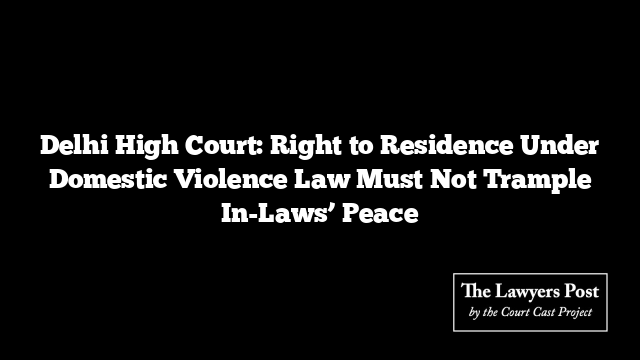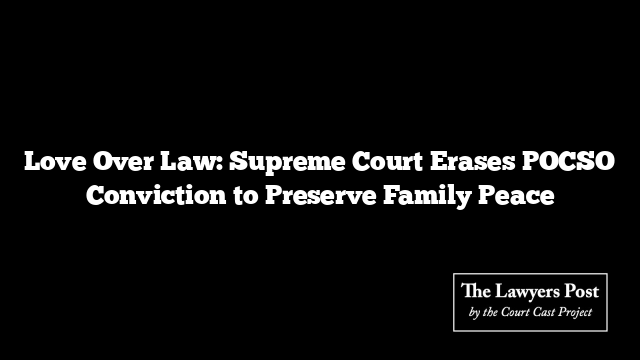The Delhi High Court has clarified that a woman’s right to live in her marital home under the Protection of Women from Domestic Violence Act (PWDV Act) is not an unqualified entitlement—it must coexist with her in-laws’ right to live in peace and dignity.
A Division Bench of Justices Anil Kshetarpal and Harish Vaidyanathan Shankar underscored that the law offers protection, not possession. “The right of residence ensures safety and stability; it does not translate into an indefinite claim over the family home,” the Court observed, stressing that the PWDV Act promises adequacy of residence, not parity of luxury.
The judges noted that this protective right cannot eclipse the rights of senior citizens who are lawful owners of the property. “Courts must strike a careful balance where multiple generations share a roof, ensuring that neither security nor serenity is sacrificed,” the ruling stated.
The judgment came while dismissing an appeal by a woman who challenged a prior order directing her to vacate her in-laws’ house. The dispute, part of a long-standing marital conflict involving numerous litigations, had turned the household atmosphere “toxic and unliveable,” according to her in-laws.
They offered to provide and fund a suitable two-bedroom flat in a comparable locality as alternative accommodation, a proposal the woman rejected, claiming it violated her statutory rights.
Rejecting her arguments, the Court held that the in-laws’ offer satisfied the legal requirements under Section 19(1)(f) of the PWDV Act and directed that the alternate residence be arranged within four weeks, with all rent and utilities paid by the in-laws.
In its closing note, the Bench emphasized that the law’s intent is to preserve both protection and peace — not to perpetuate conflict under the same roof.





